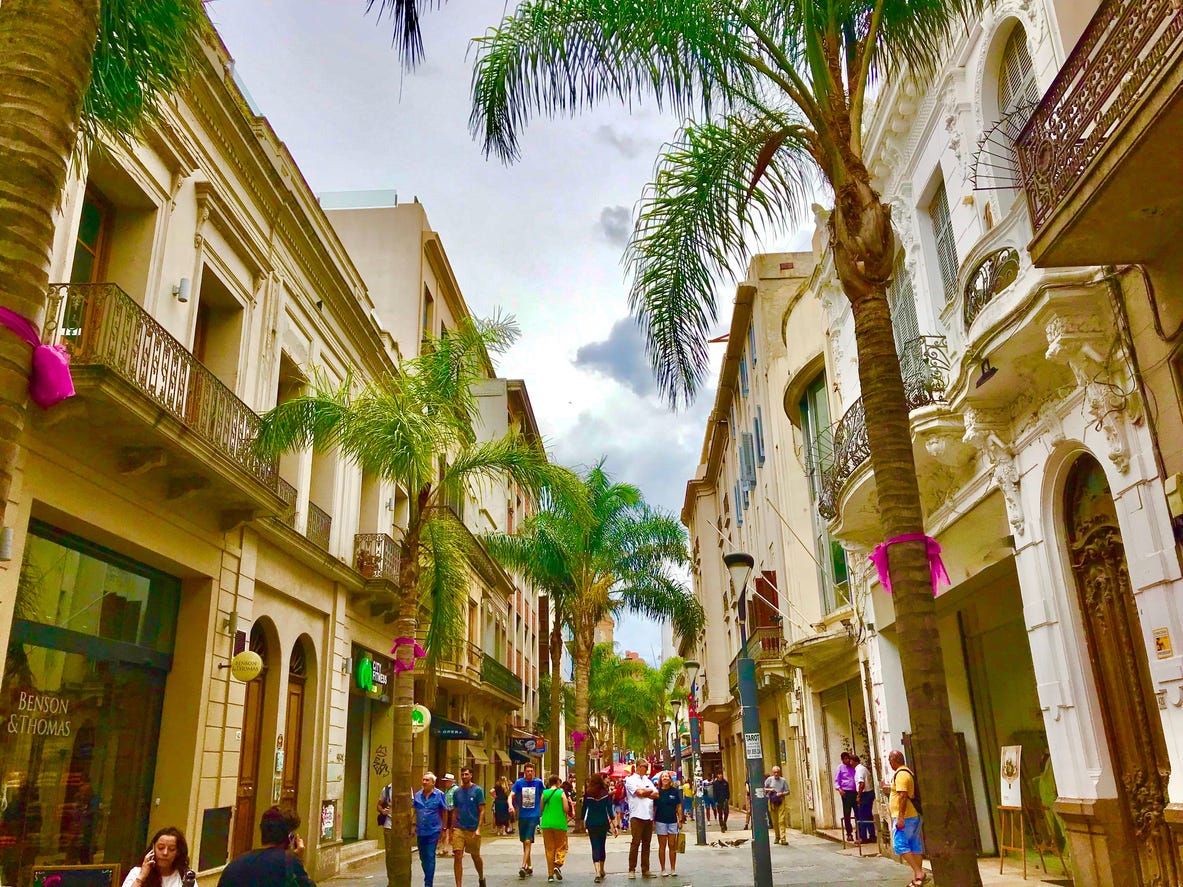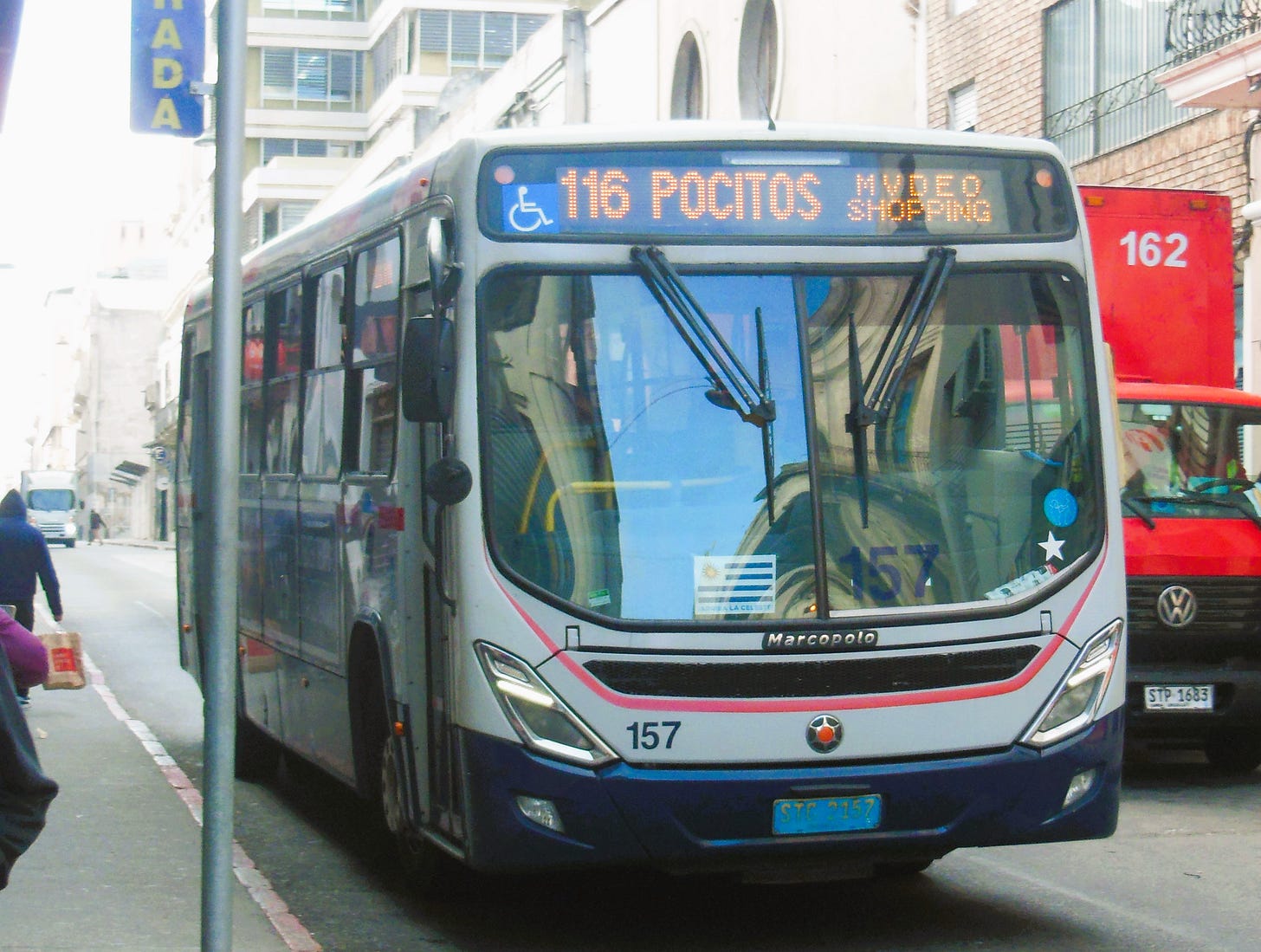The Best Salesman in Montevideo
A quiet ride on Bus 116 — and how a box of matches reminded me what true persuasion looks like.
Like most people in Montevideo, Uruguay, I get around by bus. Sometimes, musicians or salespeople board the bus to earn a little money. They’ll sing and play an instrument for tips. Or they’ll sell small items, such as candy and gum.
Some of the salespeople are pretty good. Give them a captive audience of bus passengers for two or three minutes between bus stops, and they’ll make sales.
Today, I am riding on bus 116, where I witness the salesmanship of a master.
He is a small-framed man with a beard. Everyone who boarded at the last bus stop takes one of the last remaining seats or grabs a handhold—except for this man. He stands in the aisle facing the passengers.
Is he selling something? I can't tell. I don’t see a tray or box of goods, and he isn’t saying anything. The man shuts his eyes and slightly bows his head. Is he OK? What is he doing? He appears to be in a deep state of concentration.
After several seconds, the man’s eyes slowly open, and he looks up and around at us. He slowly reaches into his large shoulder bag and takes out two small boxes of stick matches. Without saying a word, he holds one box of matches high and moves it back and forth so all of us on the bus can see.

Except for the creaking and bumping of the bus, it is completely quiet. Everyone’s attention is on the man with the matches.
He lowers the box of matches and looks at it. He smiles. He smiles as though he has never seen anything quite so extraordinary. It is as if holding and seeing the box of matches gives him a sense of deep reassurance.
At this point, he begins to speak. He speaks in a respectful, almost reverent tone.
“These matches are wood matches. The trees used to make these matches were grown over many years using all natural processes.”
He takes a match out of one of the boxes and holds it up. “There are no knots or imperfections in these matches. The wood is almost pure white. The matches are all uniform. They are all the same length and thickness.”
After a pause, he continues. “These matches are reliable. I have personally used several boxes, and every match lit successfully. The striking surface for the matches is included on the side of each box.”
He stops speaking and looks at the box of matches again. This time, his expression is one of knowing appreciation. It does not matter to him if we understand how good the matches are or not. He knows, and that’s enough.
He continues. “The printing on the matchbox has three colors and is different on each side.
This side has an attractive design.
And this side has writing. Even the side with writing adds a decorative element to any kitchen.”
The match salesman goes on to say that he does not want any of us to even think of buying a box of matches. It is not a decision we should make until we hold the matches in our own hands and personally examine them.
He goes through the bus, handing out a box of matches to everyone who will take one (which is more than half the passengers).
He then announces that for anyone who wants to take their box of matches home, the cost is five pesos.
Everyone with matches (including myself) reaches into a pocket or a purse to find five pesos. A few people offer ten pesos and ask for a second box.
As the bus approaches the next stop, the man moves more quickly, collecting his money. As he takes the last five-peso coin, the bus comes to a stop. He steps down from the bus before the passengers waiting at this bus stop start to board.
The bus moves away, and the match salesman disappears into the pedestrian traffic on the sidewalk. He is gone. And I think to myself, I should have bought two boxes. No, I should have bought four.
Sometimes it’s these small, unexpected moments that remind us why life abroad stays with you long after the bus ride ends.
Editor’s Note: If you enjoyed this slice of life from David, you’ll love his other insights on living well in Uruguay:
Dive deeper and see if Uruguay might be your kind of everyday adventure.



